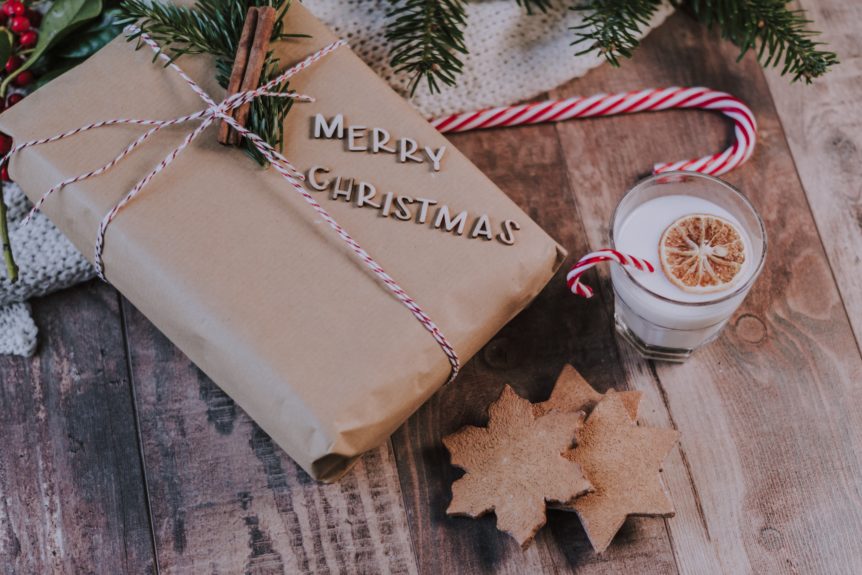News – 9 December 2021
Last month we launched our new Environmental Sustainability Strategy and one of our aims is to have a more positive impact on the environment, so we thought we’d pass on some information and suggestions so you can do the same.
Did you know:
- It costs £26 million to manage the UK’s Christmas waste every year, around half of which is due to food and packaging waste.
- £4.8 million of leftover festive food is thrown away in the UK every year. Based on the average weekly food shop spend, that’s over 52,000 weekly shops. (Bear this in mind when you hear that the Trussell Trust network of food banks gave out 1.2 million food parcels between April and September.)
- The UK bins one billion Christmas cards every year, costing £2.8 million in waste management.
- 5 million tonnes of wrapping paper are landfilled every year.
- 500 tonnes of Christmas lights are thrown away every year in the UK with the majority of them not being recycled.
- A 2m plastic Christmas tree produces 36.5 kg more life cycle emissions than a real pine tree of the same size (assuming the natural tree is recycled).
When environmentalists write about having a sustainable Christmas they’re often seen as the Scrooges of Christmas, as their message is about cutting back and not being over-indulgent. It can be quite overwhelming, but it doesn’t need to be. If we all made a few changes each year to what we buy, how we use things and how we dispose of our Christmas waste, it would really start to make an impact.
Here are some suggestions for you:
Food waste
- Get planning! Write a list of what you need and stick to it. This doesn’t mean you can’t treat yourselves, but it’s easy to go from treating to having a lot of food waste. It’s a skill knowing the exact amount to buy so you have no or minimal waste and it’s even more challenging when you’re catering for guests. So be prepared and plan what you could do with any food waste.
Top tip: www.lovefoodhatewaste.com has great tips for reducing food waste and www.trusselltrust.org will show you your nearest food bank that you can donate to.
Gifts
- Get planning (again)! If you don’t plan what you’re buying, you can end up panic buying, which usually means over-buying and/or buying an inappropriate gift. So try to plan what you’re going to buy (by looking online) and where you can buy it from.
- If you’re wrapping your gifts, try to buy recyclable wrapping paper (this is now widely available) – even better if it has recycled content too. Remember gift bags can be reused again and again. A lot of retailers have started to sell pillowcases and duvet covers in fabric bags (rather than plastic) – save these bags as they can be used to put gifts in, finished off with a string or ribbon tie.
- Does the gift have to be an item or could you opt for experiences? What about treating your loved ones to a meal, day out or photo shoot? It’s also a great way to support local independent businesses post pandemic.
Packaging
- The Packaging Tax will come into force from 2022 but until then, if you buy something with a ridiculous amount of packaging, please consider highlighting it to the retailer. Quite often over-packaging in distribution centres is due to bad practice and, as the consumer, we then become responsible for how to dispose of that packaging. Perhaps you can reuse packaging for hobbies/crafts?
Top tip: Know where your local recycling centre is and what they recycle www.recycle-more.co.uk.
Green resolutions
- If you like making New Year’s resolutions, how about making one of them a green resolution, one that will have a positive impact upon the environment? Try to make them realistic and achievable, as even small changes can start to make a difference. Here are some examples:
- Could you reduce the amount of plastic that you buy?
- Is there anything that you are not recycling that you could start (electricals/ batteries/clothing)?
- Could you donate excess food to a local food bank?
- Could you make use of food sharing networks like Olio (a mobile app that connects those with surplus food with those who would like to have that food)?
- Could you set yourself a challenge to buy no new clothes for a period of time?
- Could you give your clothes a new lease of life by learning how to sew?



